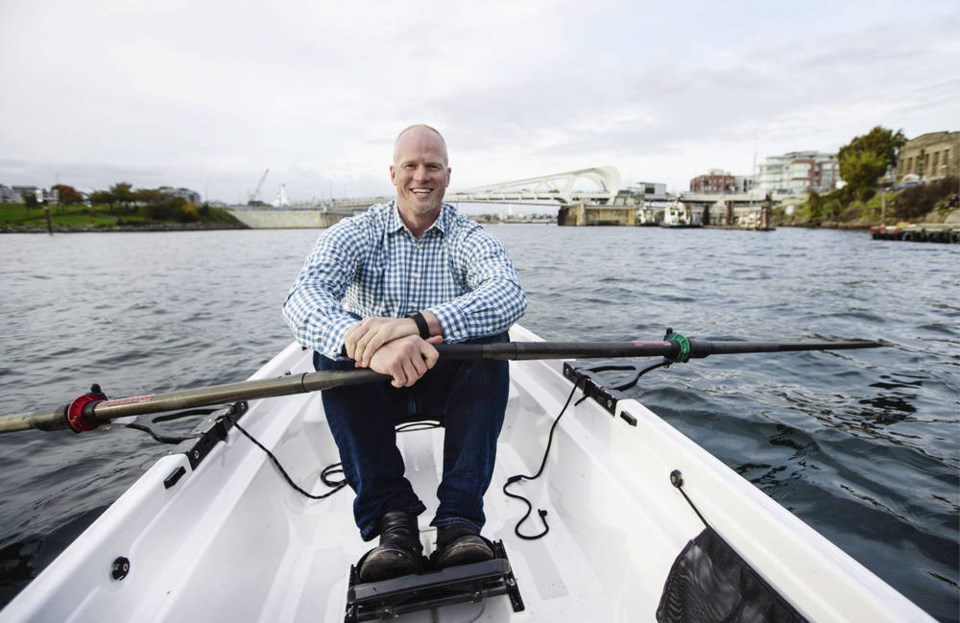Victoria’s Adam Kreek was in his Toronto hotel room this week, doing research before walking over to the CBC building to provide Olympics rowing analysis, when he stumbled across some online comments aimed at Tokyo Games athletes.
“Thanks for making me stay up late just to watch you lose,” someone wrote.
“You just let our entire nation down,” declared another.
There were others, in a similar vein.
Ticked off, former Olympian Kreek sat down to post his own take on the toxic, mean-spirited stuff being spewed on social media, a plague that shows no sign of easing.
“The answer to this problem is simple,” he wrote. “Be kind.”
“Why not send a message to the athlete (read: person) that didn’t even make it to the final heat? Tell them that you see them and appreciate all their efforts? Getting to the Olympics is an achievement on its own.
“Why not say: ‘Thanks for making our country proud!’ ‘Your efforts are inspiring.’ ‘ saw the grit you displayed.’
“Yes, results matter. I’m the first one to say that. Yet, we forget the higher purpose of sport in our society, beyond gladiatorial entertainment…. Can we celebrate each other’s efforts in the face of disappointing results? Yes, with kindness.”
Kreek reflected further in a phone conversation Thursday.
Maybe, he said, it comes down to people not recognizing the impact of posting publicly the stupid, snarky, jokey stuff that we all occasionally blurt out in private. Some people simply don’t differentiate between running their mouths the way they would in a bar, where no one takes them seriously, and doing so in a public forum, where their comments echo and hurt.
Maybe some people think they’re being funny, or have a smart-ass relationship with the athlete that strangers might take out of context. “We haven’t had the conversation on digital citizenship that we should have.”
It’s not that athletes aren’t used to pot shots from the sidelines, he says. But the volume has been turned up. “It has been amplified over the last 10 years.” And the tone is nasty, with some posters even tagging their targets to ensure they don’t miss the venom. (“Would you say that to their face when you saw them?” Kreek says of some of what he has read. “Would you say that when their mother was standing by?”)
Do the posters even consider the effect they’re having? No matter how much athletes talk about sticks-and-stones and the need to shut out the noise, sniping is discouraging; it grinds people down. “At the end of the day, it would get to you,” Kreek says.
That doesn’t just apply to Olympians, of course. Lately there have been stories of NHL free agents shunning Canadian teams because they don’t want to be subjected to the constant online savaging that now comes with playing in a hockey-mad market. Similarly, the viciousness has caused many good people to back away from elected office.
Still, it’s particularly grating when the targets are Olympians, most of whom have put in so much effort with so little to gain.
I first met Kreek early in 2008 when he and the rest of Canada’s men’s eights team were training for the Beijing Olympics. It was a gruelling existence. They practised on Elk Lake three times a day, six days a week, in snow and sleet and rain, with absolutely no prospect of tangible benefit at the end.
Rowing wasn’t a sport that resulted in fame and fortune. Kreek and his teammates were the reigning world champions, but few knew who they were. They got $1,500 a month from the federal government, but otherwise depended on help from their families to get by. One of the rower’s mothers occasionally cooked for the team, for which they were profoundly grateful.
Asked why they lived this way, Kreek quoted Aristotle and the pursuit of excellence. The rowers were the best type of athletes, those who competed not to vanquish others but to bring out the best in themselves.
When they won gold in Beijing, Kreek’s full-throated rendition of O Canada was gloriously unrestrained. But what if they had been fifth, or missed the final?
After all those years of unrewarded sacrifice, imagine how it would have felt to go online and read: “You just let our entire nation down.”
- - -
To comment on this article, send a letter to the editor: [email protected]



